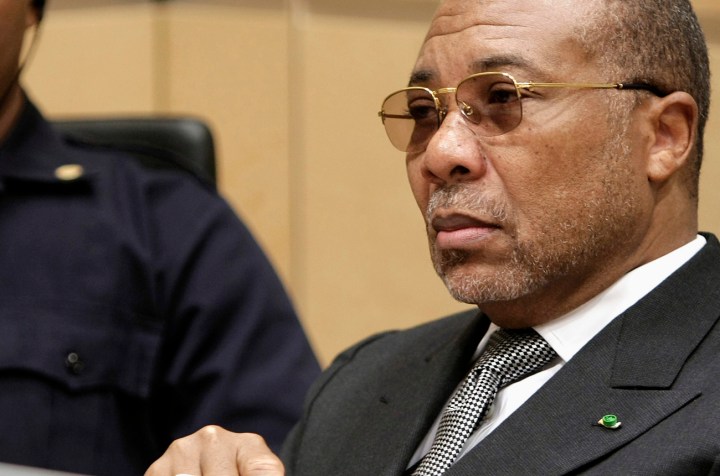Africa
Trials and tribulations of the International Criminal Court

The ICC concludes its first case on Friday, with sentencing expected early next week. It’s been a steep learning curve for the young court, which might find its real problems are only just beginning. By SIMON ALLISON.
The trial of Thomas Lubanga is remarkable for a few reasons. There’s the bizarre spectacle of a Congolese warlord being judged in a pretty Dutch town of pretty canals and neat side streets, thousands of miles from where he may or may not have committed his crimes. There’s the even more bizarre spectacle of a Congolese warlord being brought before justice at all – at least a form of justice that can’t be characterised as summary and rough. And then there’s the fact that his trial is the very first case heard in the International Criminal Court, a precedent-setter for the future of international jurisprudence from the judicial body designed as humanity’s answer to evil in this world.
It hasn’t been easy. The trial was suspended twice, with the prosecution at fault both times: first, for failing to fully disclose all its evidence to the defense team, including some which was potentially favourable to Lubanga, who is charged with three different war crimes; and again, for defying a court order to reveal the identity of an intermediary used by the prosecution to find witnesses. Both issues were resolved, eventually, but highlighted the enormous sensitivities involved in assessing war crimes charges, particularly when it comes to witness confidentiality and protection. There’s not much the ICC can do to guarantee the safety of witnesses from its base in The Hague, with its limited resources, especially when witnesses believe that Lubanga remains powerful enough to organise retribution; but nonetheless, it’s a foundation of the court that the accused has access to information which might be used against him.
The prosecution wasn’t helped by two witnesses who admitted to fabricating evidence while on the witness stand, recanting their written statements. One later claimed that he’d been intimidated into doing so, and reaffirmed his original statement once he’d been given adequate security. But by then the damage was done, especially given that the defense had all along been arguing that prosecution witnesses were making it all up. The defense later used all these irregularities to argue that the case be thrown out of court. This motion was denied by the judge, who nonetheless concluded that questions remain about whether the prosecution has abused the judicial process in some areas.
Both sides submit their closing arguments on Friday, with a verdict and sentence expected early next week – the ICC’s first ever verdict, and possibly its first sentence too. Regardless of the ins and outs of the case, a guilty verdict is likely to be seen as a vindication for the court’s slow and methodical approach to evidence collection and argument. But if Lubanga walks, expect a hailstorm of criticism, particularly from the Great Lakes region where there’s less doubt about Lubanga’s guilt than there is about the ability of the ICC to deliver justice.
The ICC has only been around a few years, but is already plagued with some serious problems, most serious is its lack of international appeal. While some 139 countries have signed up, this doesn’t include China, India or the United States; that’s over a third of the world’s population not involved. Their reluctance to participate is to protect their own soldiers from prosecution, which is practically a confession that they’re up to some very shady stuff indeed.
Then there’s the ICC Chief Prosecutor, the slick-haired, press conference-loving Luis Moreno Ocampo, who seems more interested in making headlines than getting the job done; his recent history of indictments seems to coincide with news cycles particularly well. Take the recent indictment of Muammar Gaddafi, charged with murder and persecution. These are hardly new tactics of the Gaddafi regime, but the formal charges only came up once Gaddafi had attracted enough international ire.
And from an African perspective, the ICC’s got a serious image problem. Judging by its indictments, war criminals are always African and usually black. Of the six “situations” under investigation by the ICC, all are in Africa – the DRC, Central African Republic, Uganda, Sudan, Libya and Cote D’Ivoire. No Afghanistan or Iraq on that list, no Syria or Iran, no Mexico, no USA. It seems there haven’t been any crimes against humanity in any other continent over the last few years, which is either because they’re all so much more peaceful than this barbaric Africa we live in, or there’s a fundamental problem somewhere along the line with how cases are opened and investigated.
It’s the latter. The ICC is hamstrung by the fact that it can’t launch its own investigations except in exceptional circumstances, relying on referrals from participant countries or from the UN Security Council. This means they’re asked to investigate usually when countries can’t afford to conduct the trials themselves (i.e. poor African states), or when there’s a very broad international consensus – a consensus which must include security council members China, Russia and the USA – that a particular situation needs investigating, which usually means only situations in insignificant, non-divisive countries (i.e. powerless African states).
So while the conclusion of the ICC’s first trial is a milestone for the young court, it should be remembered that the future of the court itself is still on trial, and without a few procedural tweaks and a genuine commitment to justice everywhere, it will lose its legitimacy very quickly, and the dream of an international solution to the world’s very worst problems will be lost along with it. DM
Read more:
- The ICC’s First Trial: Milestones Mixed with Near-Disasters;
- ICC’s landmark debut trial concludes after two years on Reuters Africa.
Photo: REUTERS


















 Become an Insider
Become an Insider